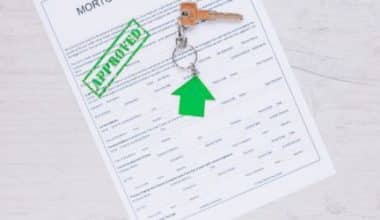Water damage is a common and costly issue that many homeowners face. Whether it’s a burst pipe, a leaking roof, or a flooded basement, the aftermath of water damage can be stressful and financially burdensome. That’s why having insurance coverage for water damage is crucial. However, getting insurance for water damage can sometimes be tricky and confusing. That’s why here, we outline some simple steps to help you get insurance to pay the costs of water damage, the most common claims, and whether homeowners insurance covers water damage or water damage from rain. So, let’s dive in and discover how to get insurance to pay for water damage!
How To Get Insurance To Pay For Water Damage
If you have homeowners’ insurance, you may get financial assistance to pay or cover the water damage expenses. To help you navigate the process, here are effective ways to get insurance to pay for water damage:
#1. Review your insurance policy
The first step is to carefully review your insurance policy to know the coverage you have for water damage. Look for specific coverage options for water leaks, burst pipes, flooding, and other water-related incidents. Then, pay attention to exclusions or limitations that may apply.
#2. Act immediately
As soon as you discover water damage in your home, take immediate action to mitigate further damage. This includes drying out the affected areas, removing standing water, and contacting a professional restoration company to assess the damage. Timely action can help prevent more extensive damage and show your insurance provider you took prompt measures to minimize it.
#3. Notify your insurance provider
Contact your insurance provider immediately to report the water damage incident. So, give them detailed information about the cause of the damage, including relevant photos or videos. Also, prepare to answer any additional questions they may have about the incident. It is crucial to notify your provider promptly to ensure your claim is processed smoothly.
#4. Document all damages and expenses
Keep a record of all the damages the water causes and expenses you incur during the restoration process. Take extensive photographs or videos of the affected areas, damaged belongings, and any repairs or replacements made. Also, keep all receipts, invoices, and documents related to the repairs, cleanup, and restoration services you hire.
#5. Work with a public adjuster
If you encounter difficulties in the claims process or feel your insurance provider is undervaluing or denying your claim, you might consider hiring a public adjuster. These are professionals who negotiate with insurance companies on behalf of the policyholder. So, they will assess the damage, help you document the claim accurately, and advocate for your rights. Hence, this increases your chances of getting a fair settlement.
Remember, every insurance policy and claim process is unique. Therefore, thoroughly read your policy, follow the requirements, and communicate promptly and effectively with your insurance provider throughout the claims process. By following these steps and providing sufficient evidence, you can increase your chances of getting your insurance to pay for water damage.
Does Homeowners Insurance Cover Water Damage?
Homeowners insurance typically covers water damage depending on the cause of the damage. If the water damage is due to sudden and accidental events such as a burst pipe, plumbing backup, or a roof leak, then homeowners insurance may cover it. The policy may also cover damage caused by heavy rain or storms as long as it is not due to flooding. However, as a homeowner, review your insurance policy and understand the coverage and exclusions related to water damage. Some policies may not cover water damage from natural disasters like floods or earthquakes. Also, consider purchasing additional flood insurance if you live in an area prone to flooding.
On the other hand, homeowners insurance may not cover water damage due to neglect or lack of maintenance. For example, if a pipe bursts due to a lack of regular maintenance or a roof leak that has been ignored, the homeowners’ insurance company may not cover the resulting water damage. Additionally, some policies may have specific exclusions for water damage due to sewage backups. For this reason, regularly maintain and repair your property to prevent water damage and ensure your homeowners’ insurance coverage is not compromised.
How Much Will Insurance Pay For Water Damage?
For water damage, the amount that insurance will pay can vary. It largely depends on the specific policy and coverage you have. Generally, most standard homeowners’ insurance policies cover water damage caused by sudden and accidental incidents, such as a burst pipe or an overflowing washing machine. However, the insurance typically does not cover water damage from negligence or lack of maintenance.
The amount insurance will pay for water damage also depends on the policy’s limits and deductibles. So, review your policy to understand what is covered and what is not. Additionally, the insurance company may send out their adjuster to assess the damage and determine the amount they will pay. For this, take photos and videos to provide evidence for your claim. Ultimately, the exact amount insurance will pay for water damage depends on a case-by-case basis, so work closely with your insurance company to ensure you receive the coverage you’re entitled to.
Most Common Water Damage Claims
Water damage claims are common for homeowners and can result in financial loss and stress. Hence, here are the most common water damage claims that homeowners experience:
- Pipe Leaks or Bursts
- Roof Leaks
- HVAC System Issues
- Flooding
- Appliance Malfunctions
- Plumbing System Backups
- Sump Pump Failures
These are some of the most common water damage claims that homeowners encounter. So, be aware of these risks and take preventive measures, such as regular maintenance, inspections, and prompt repairs, to minimize the likelihood of water damage incidents.
Does Insurance Cover Water Damage From Rain?
It depends on the specific details of your insurance policy. In general, most standard homeowners’ insurance policies cover water damage from rain. However, the insurance only covers water damage from a covered peril, such as a sudden and accidental leak from a roof or a broken window. Also, check the policy for any exclusions or limitations, as some policies may have restrictions on coverage for certain types of water damage.
When filing a claim for water damage from rain, document the damage thoroughly with photographs and videos. Then, contact your insurance company as soon as possible to report the damage and initiate the claims process. They may send an adjuster to assess the extent of the damage and determine the coverage amount.
So, note that some insurance policies may also provide temporary accommodations or additional living expenses. That’s if your home becomes uninhabitable due to water damage. To ensure you fully understand your policy’s coverage and limitations, discuss your insurance policy with an experienced agent or adjuster.
What Not To Say To Home Insurance Adjuster?
When dealing with a home insurance adjuster, choose your words carefully and avoid saying anything that can harm your claim. Firstly, do not admit fault or make statements that suggest you are responsible for the damage. Even if you suspect your actions played a role in the incident, let the investigation determine the cause rather than assuming liability.
Additionally, refrain from making speculative claims or providing unnecessary details they can use against you. Stick to the facts and present any evidence or documentation you have to support your case. Remember, the adjuster can use anything you say to evaluate your claim, so remain cautious and concise in your responses.
Are Leaking Windows Covered By Homeowners Insurance?
Generally, homeowners insurance covers sudden and accidental damage to your property, but not necessarily routine wear and tear or maintenance issues. However, if the leak in your windows is due to a covered peril, then your insurance policy may help cover the cost of repairs.
Does Homeowners Insurance Cover Broken Pipe Under Slab?
Homeowners’ insurance typically covers damage from a broken pipe under a slab, but the coverage may depend on the policy and the cause of the pipe breakage. In most cases, if the breakage is sudden and accidental, the insurance policy will likely cover the cost of repairs and any resulting damage, such as water damage to the property or personal belongings.
How To Negotiate A Homeowners Insurance Claim?
First, gather all relevant documentation related to your claim. This may include photographs of the damage, receipts for repairs or replacements, and other supporting evidence. Next, review your insurance policy thoroughly. Understand the coverage details and limits to ensure you are well-informed when discussing your claim with the insurance company.
During the negotiation, maintain open and clear communication with the insurance company. Be persistent and assertive in advocating for a fair settlement. Keep track of all conversations, emails, or written correspondence, and take detailed notes during phone calls. Additionally, consider enlisting the help of a public insurance adjuster, who can provide expert advice and represent your interests during the negotiation process.
Does Insurance Cover Slow Water Leaks?
In most cases, insurance policies do not cover slow water leaks. This is because slow water leaks are often a maintenance issue you can prevent with proper upkeep and regular inspections.
Does Home Insurance Cover Mold From Water Damage?
Most standard home insurance policies cover mold damage from a covered peril. However, home insurance policies typically exclude coverage for mold from ongoing or long-term moisture issues, neglect, or lack of maintenance. This means if the mold is found to be the result of a preventable issue, the insurance provider may not cover the cost of mold remediation.
How Many Claims Before Homeowners Insurance Cancels?
There is no specific number of claims that will automatically result in a cancellation of the policy. Each insurance company has guidelines and policies to determine when a policy may be canceled due to excessive claims. In general, insurance companies review the frequency and severity of claims to evaluate the risk of insuring a particular property.
Why Would Home Insurance Deny A Claim?
One common reason for claim denial is when the damage or loss is not in the policy. Another reason for claim denial can be due to a lack of sufficient evidence or documentation. Finally, failure to report the claim on time can also result in denial.
Should You Be Honest With Insurance Company?
Being honest with your insurance company is of utmost importance. With your honesty, they’ll pay for your claims without any hassles.
What Triggers An Insurance Investigation?
One Common trigger for an insurance investigation is when the amount claimed exceeds a certain threshold. Insurance companies may set certain monetary limits, typically based on the coverage amount, above which they automatically investigate claims. Hence, this is to ensure that large claims are genuine and not a result of intentional deceit or fraud.
Final Thoughts
As a homeowner, understanding how to get insurance to pay for water damage can save you time and money. So, follow these simple steps to get insurance to cover water damage and alleviate the financial burden of unforeseen water-related disasters.






